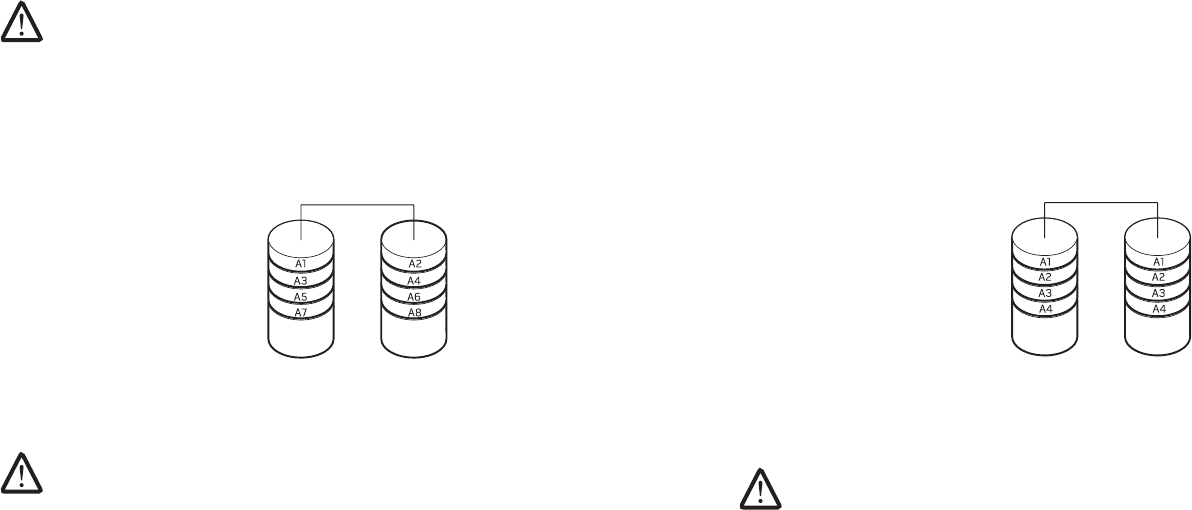
025
025
/
CHAPTER 4: USING YOUR DESKTOP
RAID Level 0
CAUTION: RAID level 0 provides no redundancy. erefore, a failure
of one drive results in the loss of all data. Perform regular backups to
protect your data.
RAID level 0 uses data striping to provide a high data access rate. Data striping
writes consecutive segments, or stripes, of data sequentially across the physical
drive(s) to create a large virtual drive. is allows one of the drives to read data
while the other drive is searching for and reading the next block.
RAID 0
Disk 0 Disk 1
RAID 0 uses the full storage capacities of both drives. For example, two 2 GB hard
drives combine to provide 4 GB of hard drive space on which to store data.
NOTE: In a RAID 0 conguration, the size of the conguration is equal to
the size of the smallest drive multiplied by the number of drives in the
conguration.
RAID Level 1
RAID level 1 uses data mirroring to enhance data integrity. When data is written
to the primary drive, the data is also duplicated, or mirrored, on the secondary
drive in the conguration. RAID 1 sacrices high data-access rates for data
redundancy.
RAID 1
Disk 0 Disk 1
If a drive failure occurs, read and write operations are directed to the remaining
drive. A replacement drive can then be rebuilt using the data from the remaining
drive.
NOTE: In a RAID 1 conguration, the size of the conguration is equal to
the size of the smallest drive in the conguration.


















